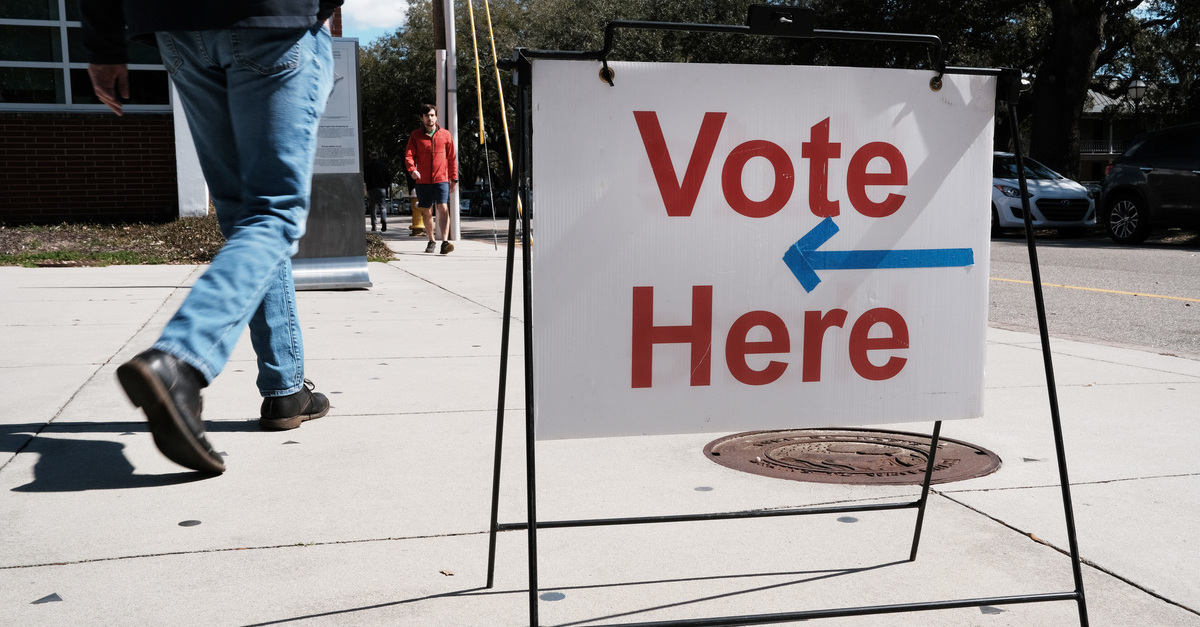
Voting rights advocates notched a significant legal victory in South Carolina on Memorial Day after a federal court blocked a requirement that would have forced people who vote by mail to obtain a witness’s signature.
According to the court, “the burdens placed upon [voters] by the Witness Requirement far outweigh the imprecise, and (as admitted by [state electoral officials] Defendants) ineffective, state interests of combating voter fraud and protecting voting integrity.”
Stylized as Thomas v. Andino, the lawsuit filed in the U.S. District Court for the District of South Carolina was decided by way of a 56-page opinion and order released Monday which bars state electoral officials “from enforcing the Witness Requirement set forth in S.C. Code Ann. § 7-15-380, and from enforcing the Witness Requirement set forth in any other South Carolina statute.”
Litigation began in late April by attorneys with the American Civil Liberties Union (ACLU), the ACLU of South Carolina, and the NAACP Legal Defense and Educational Fund–all of whom welcomed the court’s decision in statements issued after the verdict was released.
“The ruling, which applies to the June primary, makes it safer for South Carolinians to vote during the COVID-19 pandemic,” the voting rights group said in a press release–adding that the requirement “could have disenfranchised tens of thousands of eligible voters who could not risk contact with other individuals to vote in person or obtain a witness signature on their absentee ballot.”
Adriel Cepeda Derieux, a staff attorney with the ACLU’s Voting Rights Project hailed the court’s decision.
“The court recognized the gravity of forcing voters to needlessly risk their health to obtain a witness signature,” he said. “This ruling means voters in South Carolina can safely cast a ballot in the June primary elections in this time of COVID-19. It is a huge victory.”
Opponents of mail-in voting in various states–including GOP state officials defending against the South Carolina lawsuit–have argued that while the right to vote is guaranteed, the right to vote by mail is not necessarily protected by the U.S. Constitution.
The court dismissed that line of argument in the present case:
Defendants are correct that under South Carolina law, absentee voting is a “privilege,” not a right to vote itself. However, while this court agrees that the right to an absentee ballot is not guaranteed by the First Amendment, that does not mean that absentee voting is per se unprotected under the First Amendment. For example, much like absentee voting, there is “no fundamental right to run for elective office,” and yet the Supreme Court has recognized laws restricting candidates’ access to the ballot implicate the First Amendment because they “‘place burdens on two different, although overlapping, kinds of rights—the right of individuals to associate for the advancement of political beliefs, and the right of qualified voters, regardless of their political persuasion, to cast their votes effectively.’”
Most GOP opposition to vote by mail has included objections that such systems are prone to voter fraud. The court rubbished those concerns explicitly in its decision in this case, noting that state officials “have not offered any evidence of voter fraud in South Carolina” except for “a voter-buying scandal from the 1980s.”
Susan Dunn, legal director of the ACLU of South Carolina also heralded the court’s decision.
“This ruling is a critical victory for our democracy and all voters in South Carolina,” she said. “The elimination of the witness requirement protects not only those who are most vulnerable to the pandemic, it also ensures that no one will have to risk exposure to COVID-19 in order to exercise their fundamental right to vote in the primary elections.”
The court also tied the ruling into the current novel Coronavirus (COVID-19) pandemic–stating that the need for increased voting access was obviated by the sweep of the deadly contagion and that to suggest or argue otherwise was “nonsensical.”
“The evidence in the record points to the conclusion that adherence to the Witness Requirement in June would only increase the risk for contracting COVID-19 for members of the public with underlying medical conditions, the disabled, and racial and ethnic minorities,” the decision reads. “Strikingly, the Witness Requirement would still apply to voters who have already contracted COVID-19, therefore affirmatively mandating that an infected individual go ‘find’ someone to witness their absentee ballot and risk exposing the witness (and whoever comes in contact with the witness) to the virus.”
“The asymptomatic COVID-19 voter would unknowingly place potential witnesses at risk and the symptomatic COVID-19 voter would be hard-pressed to find a willing witness,” the court continued. “Defendants are also hard-pressed to convince this court, at least, that this predicament created by strict enforcement of the Witness Requirement is in the best interests of the public during a pandemic of this nature.”
Deuel Ross, senior counsel at the NAACP Legal Defense and Educational Fund was effusive about the advocates’ victory:
Today’s decision represents an enormous victory for our clients and all South Carolinians. The temporary suspension of the witness signature requirement for absentee ballots removes a needless barrier that required people to violate social distancing protocols to vote. Now, everyone can vote in the June elections without the fear of endangering their health. This win is especially important for black voters, who are more likely to be infected by COVID-19 and more likely to die from it than other South Carolinians. The court’s decision protects the safety and well-being of those voters who are most at risk from COVID-19.
“No one should have to choose between their health and their vote,” the ACLU said via their official Twittervia their official Twitter account after the order was released.
Read the court’s full order below:
Thomas v. Andino Order by Law&Crime on Scribd
[image via Spencer Platt/Getty Images]